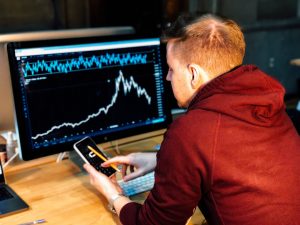The foreign exchange market (forex) is the largest financial market in the world, with a daily turnover of over $5 trillion. In this market, currencies are bought and sold at different prices, which can vary depending on a number of factors. The difference between the buying and selling price of a currency is known as the spread, and it is an essential component of forex trading. In this article, we will explore why there is a spread in forex and how it affects traders.
The spread in forex is the difference between the bid and ask prices of a currency pair. The bid price is the price at which a trader can sell a currency, while the ask price is the price at which a trader can buy a currency. The spread is calculated by subtracting the bid price from the ask price. For example, if the bid price for EUR/USD is 1.1200 and the ask price is 1.1205, the spread is 0.0005 or 5 pips.
The spread exists in forex because of the decentralized nature of the market. Unlike the stock market, where all trades are executed through a centralized exchange, forex trades are executed through a network of banks, brokers, and other financial institutions. These institutions quote different prices for currency pairs based on their own trading activities and market conditions. As a result, there can be small variations in the price of a currency pair between different institutions.
The spread is also influenced by market liquidity. Liquidity refers to the ease with which a currency can be bought or sold without causing a significant change in its price. Currencies that are in high demand and have high trading volumes tend to have lower spreads. Conversely, currencies that are less in demand or have lower trading volumes tend to have higher spreads.
Another factor that affects the spread is the type of forex broker used by the trader. There are two types of forex brokers: market makers and ECN/STP brokers. Market makers are brokers that create their own market by quoting their own bid and ask prices. They make money by charging traders a spread on each trade. ECN/STP brokers, on the other hand, connect traders directly to the interbank market, where they can buy and sell currencies at the best available prices. ECN/STP brokers charge a commission on each trade instead of a spread.
The spread has a significant impact on the profitability of forex trading. When a trader buys a currency pair, they do so at the ask price, which is higher than the bid price. When they sell the currency pair, they do so at the bid price, which is lower than the ask price. This means that the trader incurs a loss equal to the spread on each trade. For example, if the spread on EUR/USD is 2 pips, the trader would need to make a profit of at least 2 pips to break even on the trade.
The spread also affects the accuracy of technical analysis. Technical analysis is a method of predicting future price movements based on past price data. When a trader uses technical analysis, they rely on the accuracy of the price data they are analyzing. If the spread is too large, it can distort the price data and make it difficult for the trader to make accurate predictions.
In conclusion, the spread in forex exists because of the decentralized nature of the market, differences in pricing between financial institutions, market liquidity, and the type of forex broker used by the trader. The spread has a significant impact on the profitability of forex trading and the accuracy of technical analysis. Traders should be aware of the spread and choose a broker that offers competitive spreads and reliable price data.






